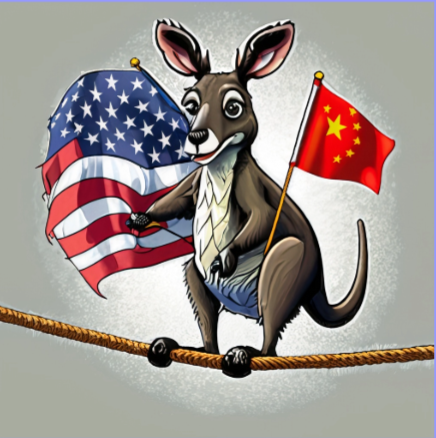
Introduction
As Australians commemorate Anzac Day, the question arises, “Should Australia always follow other countries into war?” Australia’s decisions shape its identity, security, and reputation. But navigating sovereignty and alliances is like walking a tightrope – you need to take each step very carefully; if you make a mistake you are going to need to compensate quickly or the consequences can be harsh.
The Anzac Legacy
Every year, Australia pays tribute to Anzac heroes who gave their lives in distant lands, fighting in the trenches of World War 1. Their names are found on memorials across the country, and their stories are retold in Anzac ceremonies. The sacrifice of the Anzacs reminds us that freedom comes at a high price. We are also promptedthat wars bring suffering, atrocity and injustice. The Anzacs showed incredible courage and selflessness, leaving a legacy that has shaped the nation.
Alliances and Sovereignty
Australia’s alliances are like having strong friends – they provide protection but there’s also a need to consider their interests. Australia has benefitted from the United States and Britain though strength in numbers, shared intelligence, and cooperation. When allies have called, Australia has responded. Yet canAustralia honour its past while asserting its sovereign right to say “no”?
Australia’s economy thrives on trade, especially with China, yet security rests with alliances, which come with obligations. The ANZUS and AUKUS Treaties have responsibilities and 8 in 10 Australians see the USalliance as important for Australia’s security, but three quarters of Australians also think the alliance makes it more likely that Australia will be drawn into a war with Asia. The US alliance could become more interesting if Donald Trump becomes President again.
If there was a military conflict between China and the United States, 56% of Australians think that Australia should remain neutral (Lowry Institute, 2023). However complete neutrality can be risky. Balancing sovereignty and alliances whilst seeking global peace is not a straightforward walk, though to fail would be disastrous.
The Australian Defence Force
Australian Defence Force (ADF) defend the nation they have an unwavering commitment to be worthy of the Anzac heritage. The ADF put their lives on the line through deployment to operations overseas and in Australia, showing pride and willingness to serve and sacrifice for Australia. If conflict erupts in the South China Sea, will Australia follow the US? Australia’s economic position, the ADF and Australians would be impacted.
It is important that the ADF has the necessary resources to both protect and deter, however they rely ongovernment policy priorities and Australia’s allies. The ADF are worthy of support and respect, as they mirror the courage of the Anzacs who have sacrificed before them.
Justice and Mercy
With global tensions high, Christians find guidance in the bible. Micah 6:8 reminds: “He has shown you, O mortal, what is good. And what does the Lord require of you? To act justly, to love mercy, and to walk humbly with your God.” Justice isn’t merely a legal concept; it’s a mandate.
When war decisions are considered, nations shoulduphold justice, not just their own geopolitical interests, remembering that global leaders are also accountable to God. As Australia looks for a path between alliancesand sovereignty, it should pursue justice, tempered with compassion and a commitment to peace.
Conclusion
It is understandable that some wonder whether World War 3 is becoming more likely, given increasing global hostilities. Australia is near some of the world’s largest populations and fastest growing economies, all with their own agendas. Building healthy relationships, while respecting alliances, will be crucial for Canberra’s decision makers, if Australia is to remain stable, proud and free. The government’s current pragmatic stanceappears to be working – let’s pray that it continues. Amidst it all, lest we forget the sacrifices made by the Anzacs and strive towards peace.









